Books
Judging Big Tech
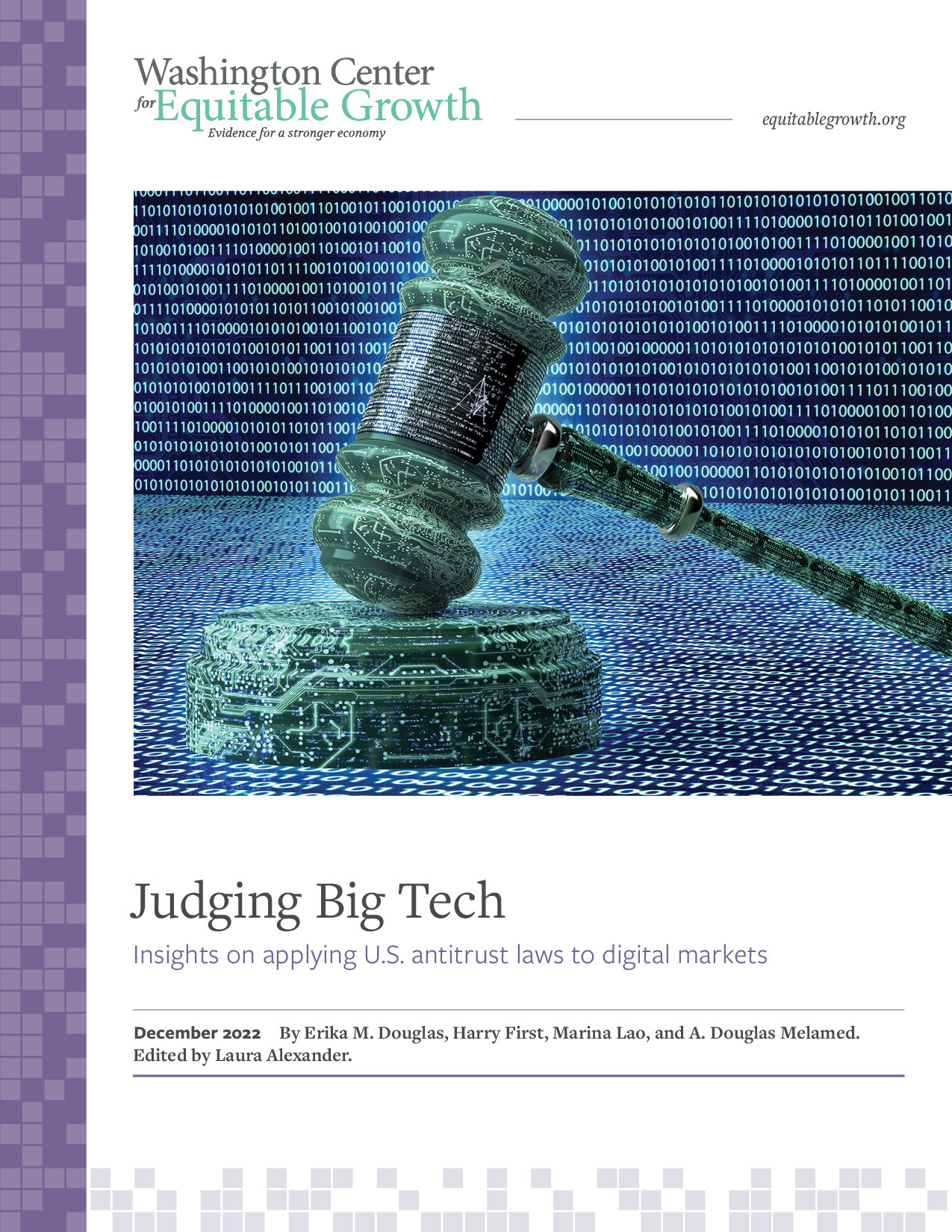
The importance of digital information technology and communications giants to the U.S. economy and society today is undeniable. The business strategies of these companies are increasingly capturing the attention of the U.S. Congress, the White House, federal agencies, and governors and state legislatures across the nation. This increased focus is not surprising, given that these companies—including Amazon, Apple, Alphabet’s Google unit, and Meta Platform’s Facebook and Instagram units—are the main arteries for the U.S. public’s social and commercial engagement online.
These digital information technology and communications companies hold tremendous commercial and political power. That’s why antitrust enforcement agencies are particularly focused on how these firms are expanding and entrenching their businesses and how those decisions affect U.S. consumers, competitors, and workers. The problem from an antitrust enforcement perspective, however, is that the business practices and strategies playing out across the U.S. information technologies and communications sectors and beyond are not always easily connected to the historic applications of U.S. antitrust law, which consists of laws and precedents dating back to 1890 and draws on even earlier common law principles.
The four essays in this book seek to bridge this gap and provide objective insights, unfiltered through the lens of litigation or business strategy, on how courts and litigants can successfully navigate these relatively unchartered waters to apply our nation’s century-old antitrust statutes to today’s U.S. digital information technology and communications industries in a way that is consistent with the central goal of antitrust: to protect and promote competition. Rather than arguing which side should win, the authors of these essays seek to unpack the correct analytical framework and identify the dispositive facts that judges need to understand to rule fairly and effectively in antitrust cases involving modern technology markets.
Boosting Wages for U.S. Workers in the New Economy
By Equitable Growth
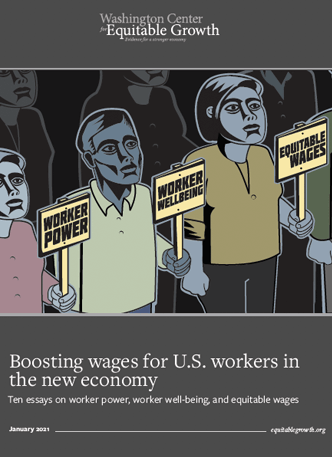
The U.S. labor market is shackled by decades of wage stagnation for the majority of workers, persistent wage disparities by race, ethnicity, and gender, and sluggish economic growth. The steady increase of income inequality since the 1970s leaves generations of U.S. workers and their families unable to cope with the daily costs of living, let alone save for emergencies or invest in their futures—conditions that have left many families ill-prepared for the “stress test” of the coronavirus recession. These labor market ills particularly affect women and workers of color due to decades of gender inequality and structural racism erecting barriers to opportunities.
There is increasing evidence that broad structural inequality leads to a misallocation of talent and the undervaluation of different types of work, which contributes to anemic economic growth and slower productivity gains. Boosting Wages for U.S. Workers in the New Economy, a joint effort of Equitable Growth and the Institute for Research on Labor and Employment at the University of California, Berkeley, presents a series of essays from leading economic thinkers, who explore alternative policies for boosting wages and living standards, rooted in different structures that contribute to stagnant and unequal wages. The essays cover a variety of strategies, from far-reaching topics such as the U.S. social safety net and tax policies to more targeted efforts emphasizing laws governing American Indian tribal communities and the barriers facing women and workers of color in the science, technology, engineering, and mathematics fields.
Vision 2020: Evidence for a stronger economy
By Equitable Growth
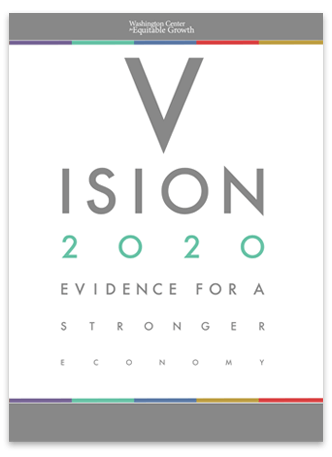
To shape the 2020 policy debate and lead the charge for long-term structural change, the Washington Center for Equitable Growth has released Vision 2020: Evidence for a stronger economy.
This book is a compilation of 21 essays by a new generation of scholars who are proposing evidence-backed, concrete, and at-scale policy ideas to reduce economic and racial inequality and boost shared prosperity. Taken together, these ideas form the backbone of an agenda for equitable economic growth in the third decade of the 21st century.
Unbound
By Heather Boushey
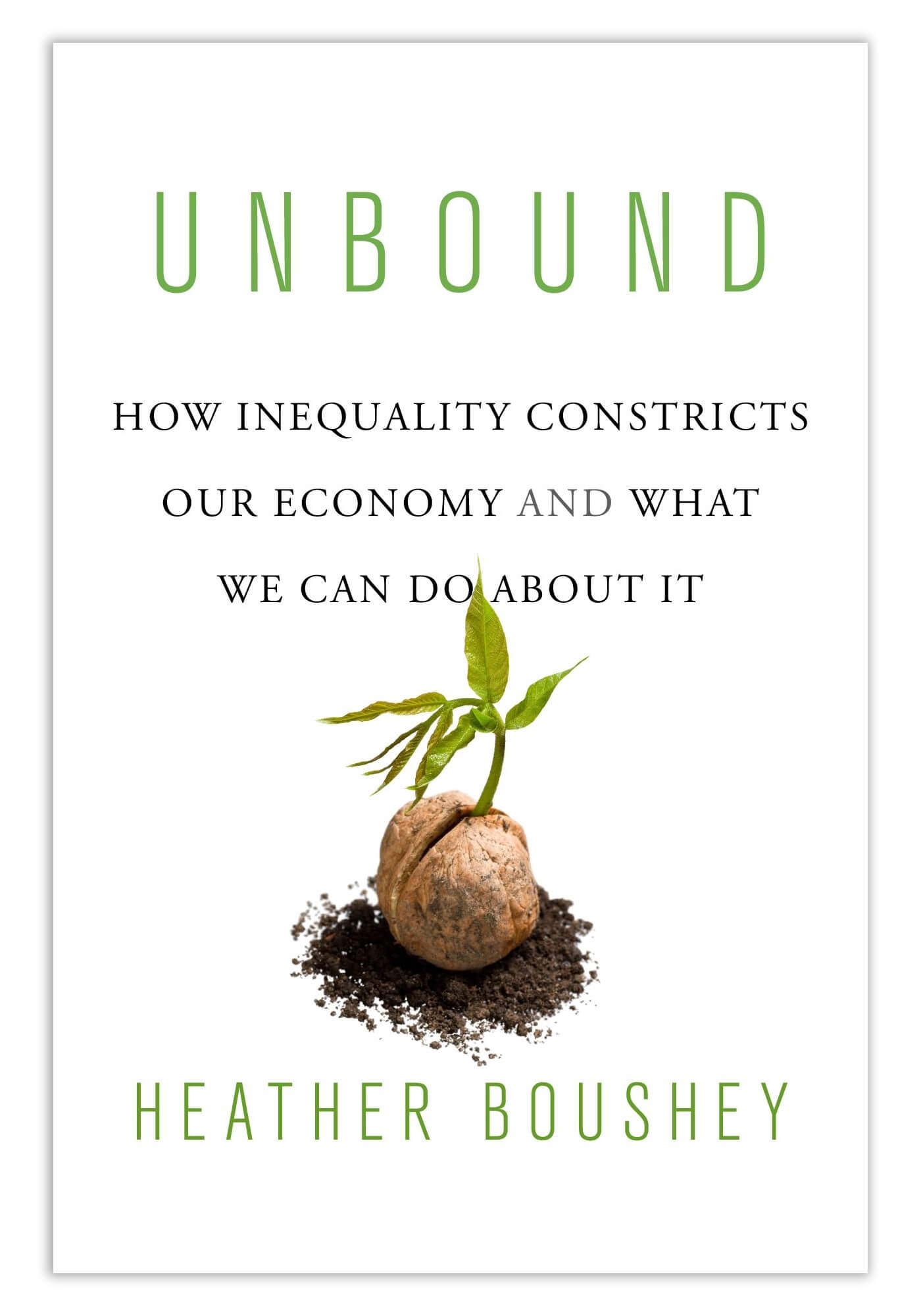
Do Americans really have to choose between equality and prosperity? Many economists argue that reducing economic inequality would require such heavy-handed interference with market forces that it would stifle economic growth. In Unbound: How Inequality Constricts Our Economy and What We Can Do about It, Washington Center for Equitable Growth President and CEO Heather Boushey insists nothing could be further from the truth. Presenting cutting-edge economics with journalistic verve, she shows how today’s inequality has become a drag on growth and an impediment to free market efficiency.
Unbound exposes deep problems in the U.S. economy, but its conclusions are optimistic. Boushey argues that policymakers can preserve the best of our economic and political traditions, and improve on them, by pursing policies that reduce inequality and boost growth. The most critical steps are those that limit inequality’s ability to constrict our economy and tackle the ways that the concentration of economic resources translate into political and social power. The solutions start with addressing the subversions, which creates the opportunity to remove obstructions and limit distortions in the broader economy. Unbound explores several tools that policymakers can adopt to rebalance our economy.
Recession Ready
Edited by Heather Boushey, Ryan Nunn, and Jay Shambaugh
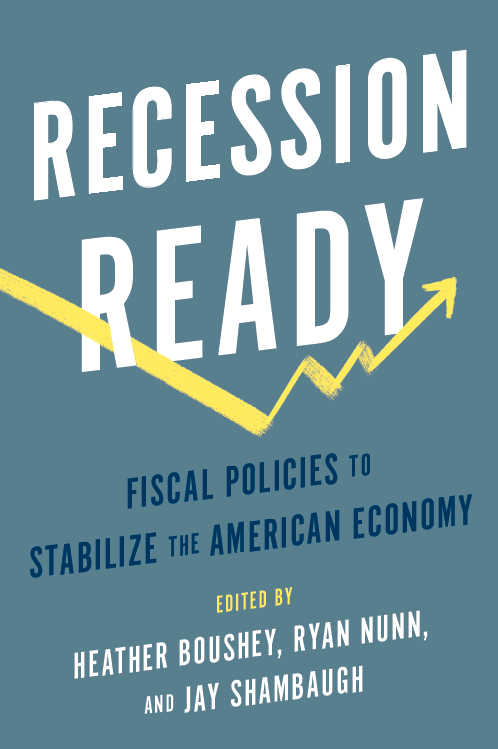
Economic recessions are inevitable and they are painful, with harsh short-term effects on families and businesses and potentially deep long-term impacts on the economy and society. But we can ameliorate some of the next recession’s worst effects and minimize its long-term costs if we adopt smart policies now that will be triggered when its first warning signs appear.
Equitable Growth has joined forces with The Hamilton Project to advance a set of specific, evidence-based policy ideas for shortening and easing the impacts of the next recession. In a new book, Recession Ready: Fiscal Policies to Stabilize the American Economy, experts from academia and the policy community propose six big ideas, including two entirely new initiatives and four significant improvements to existing programs, all to be triggered when the economy shows clear, proven signs of heading into a recession. These proposals (see more on each below) aim to strengthen and add to our automatic stabilizers: policies that inject money into the economy in a downturn and withdraw stimulus when the economy is strong. Congress should consider these policy proposals now because when the next recession appears on the horizon, it may be too late.
Finding Time
By Heather Boushey
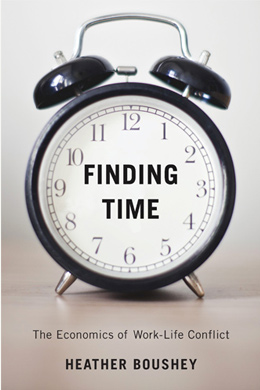
In “Finding Time: The Economics of Work-Life Conflict,” author Heather Boushey argues that resolving work-life conflicts is as vital for individuals and families as it is essential for realizing the United States’ productive potential. The federal government, however, largely ignores the connection between individual work-life conflicts and more sustainable economic growth. The consequence: business and government treat the most important things in life—health, children, elders—as matters for workers to care about entirely on their own time and dime. That might have worked in the past, but only thanks to a hidden subsidy: the American Wife, a behind-the-scenes, stay-at-home fixer of what economists call market failures. When women left the home—out of desire and necessity—the old system fell apart. Families and the larger economy have yet to recover.
After Piketty
Edited by Heather Boushey, J. Bradford DeLong, and Marshall Steinbaum
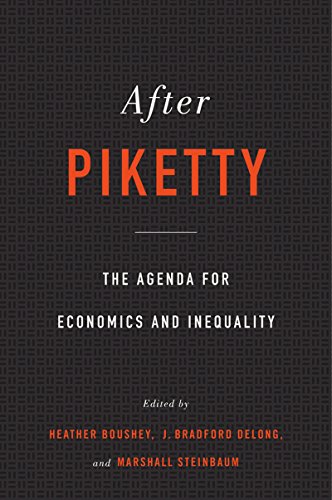
Thomas Piketty’s Capital in the Twenty-First Century is the most widely discussed work of economics in recent history, selling millions of copies in dozens of languages. But are its analyses of inequality and economic growth on target? Where should researchers go from here in exploring the ideas Piketty pushed to the forefront of global conversation? A cast of economists and other social scientists tackle these questions in dialogue with Piketty, in what is sure to be a much-debated book in its own right.
After Piketty opens with a discussion by Arthur Goldhammer, the book’s translator, of the reasons for Capital’s phenomenal success, followed by the published reviews of Nobel laureates Paul Krugman and Robert Solow. The rest of the book is devoted to newly commissioned essays that interrogate Piketty’s arguments. Suresh Naidu and other contributors ask whether Piketty said enough about power, slavery, and the complex nature of capital. Laura Tyson and Michael Spence consider the impact of technology on inequality. Heather Boushey, Branko Milanovic, and others consider topics ranging from gender to trends in the global South. Emmanuel Saez lays out an agenda for future research on inequality, while a variety of essayists examine the book’s implications for the social sciences more broadly. Piketty replies to these questions in a substantial concluding chapter.
